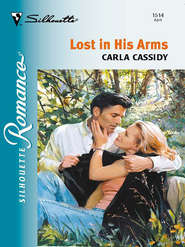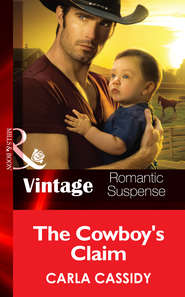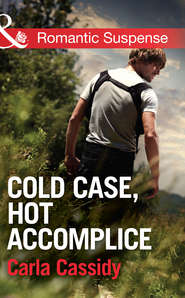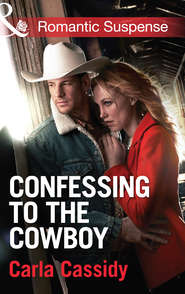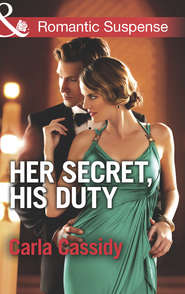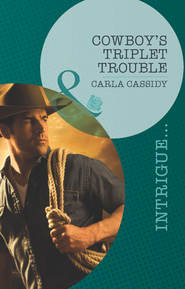По всем вопросам обращайтесь на: info@litportal.ru
(©) 2003-2024.
✖
Romancing The Crown: Drew and Samira: Her Lord Protector
Автор
Год написания книги
2019
Настройки чтения
Размер шрифта
Высота строк
Поля
‘‘You should try the souvlakia,’’ Rose said, indicating the spicy shish kebab, one of many offerings on the groaning buffet table. ‘‘Emil—he’s the cook here—has a wonderful way with lamb.’’
Obediently Drew placed one on his plate, but slid her a wry glance. ‘‘I think you just want to see me dribble sauce on my shirt.’’
She grinned. ‘‘No, I wanted to see if you’d eat it with your fingers or struggle with a knife and fork.’’
Rose had brought Drew to the fioreanno after giving him the same amount of notice as he’d given her last night. None. She’d told him something of what to expect on the way here, assuming that, while he might have heard of the fioreanni, he wouldn’t have attended one. The upper classes didn’t. A fioreanno was like the quinzeñero celebrated by young Mexican girls, or the coming-out ball given young ladies of his class in England. His sister, she supposed, would have been presented to society. This was much the same thing.
She’d also given him a hint of how to dress, since he’d done that much for her. Casual, she’d said, and for herself she’d chosen a sleeveless sundress, full-skirted for dancing, baticked in the deep colors of a dying sunset. She wore one of her favorite necklaces with it, a copper-and-brass design of her own.
Of course, what passed for casual with Drew stood out in this company every bit as much as she’d failed to blend with royalty at the palace last night. He looked every inch the relaxed aristocrat in khaki chinos and a shirt of unbleached linen that had probably cost more than her favorite little black dress.
They carried their laden plates to one of the tables that spilled out onto the sidewalk. A short, middle-aged man sat alone at a nearby table—Drew’s bodyguard. He’d followed them here in a tiny Fiat and was looking everywhere except at them.
He was the only one who wasn’t watching them. Amused, Rose sat at the little table. ‘‘Will you dribble sauce on yourself, do you think?’’
‘‘Undoubtedly, if there’s a photographer from the Tattler or Le Stelle within flashbulb range. Otherwise I may manage to muddle through. Which brings up a question,’’ he said, putting down his plate so he could draw out her chair. ‘‘Why did you introduce me to our host and hostess as Drew, no last name? You said your neighbors all know who I am.’’
‘‘This way they can pretend they don’t. More comfortable for everyone that way. Rather like the way your aunt, uncle and cousins pretended last night that they didn’t know that I am, at best, that crazy woman who claims to be psychic. Or at worst…’’ She lifted her eyes to his as he sat across from her at the tiny table. ‘‘The worst would make me something unspeakable.’’
‘‘I don’t believe the worst,’’ he said quietly. ‘‘As for what my family believes, Lorenzo asked me to—’’
‘‘Please.’’ She put her hand on his wrist. ‘‘I shouldn’t have said anything before we’ve had a chance to taste Emil’s souvlakia. I didn’t intend to. If His Grace asked you to convey some message to me, you can tell me after the party, all right? For now, let’s eat too much and talk about our neighbors and enjoy ourselves. That’s what a fioreanno is for.’’
He didn’t respond right away. She wouldn’t have known what he was thinking, what he was feeling, if her fingers hadn’t been resting on his wrist, where his pulse beat. It had picked up when she touched him.
As had hers.
‘‘All right,’’ he said, but it was his mouth that carried his smile this time, not his eyes. ‘‘Tell me about your neighbors, since none of mine are nearby to gossip about.’’
So she did. While they ate souvlakia—he did use his fingers and didn’t get any spots on his shirt—she told him brief, amusing stories about some of the people she knew in the crowd. And insisted he uphold his end by talking about people he knew back in England. You could learn a lot, she knew, about a person by the way he spoke of others.
At first he resisted. ‘‘I’m not asking for secrets,’’ she told him severely, spreading melitzana on a slice of crusty bread and handing it to him. ‘‘Or anything hurtful. Just the sort of thing that everyone knows already. You know…who’s been married five times, who is getting married—and why, if possible. That makes it more interesting. Who collects Elvis memorabilia, or better yet, thinks she’s spoken to Elvis recently.’’
Amusement softened his face and made his green eyes bright. ‘‘The sort of thing they’d put in the Tattler, if the Tattler were ever to do an edition about normal people?’’
‘‘Exactly. Though you can omit the candid photos.’’
Though his stories were short, they revealed a dry wit and tolerant acceptance blended with a good deal of perception. She listened, she chuckled at times, and she watched the strong bones of his wrists and the way the candlelight gilded the messy curls of his hair.
Impulsively she asked, ‘‘Why do you wear your hair long? I like it, but it doesn’t seem to fit.’’
If her question surprised him, it didn’t show. But for a second, she thought he looked uneasy. ‘‘I don’t like getting it cut. It’s childish, of course. As soon as I’m told to sit still and behave, I get restless.’’
It was easy to forget that he wasn’t a handsome man or a charming one. He was too self-contained for charm, and his face was too long, his shoulders broad but too bony for true masculine beauty. But there was something in the way he moved that drew the eye, something compelling in the way those uneven features were knit together, something in even his silences that fascinated…and then he smiled. He smiled, and you forgot whatever silly ideas you’d once held about what was and wasn’t beautiful.
They were interrupted a few times. Drew watched their latest visitor—an old woman with a mustache and a black cane—hobble off. ‘‘Amazing. I don’t think I’ve ever been quite so thoroughly interrogated without being asked a single question.’’
Rose chuckled. ‘‘It would be rude to question you, since everyone knows you’re here incognito.’’
His gaze flicked back to her, the creases beneath his eyes deepening. ‘‘Everyone knows? As in, one of those things everyone already knows and part of the stories making the rounds tonight?’’
She grinned. ‘‘You and I are being discussed and speculated about with almost as much interest as is given to what all this cost. And that, you know, is a matter of great importance. You noticed the compliment Signora Lorenzi paid just now to the florist who provided the flowers?’’
‘‘You told her you would pass it on to someone named Adrian.’’
‘‘That was to let her know that Signora Serminio probably got her floral arrangements wholesale. Adrian is a florist. He is also a second cousin of Signor Anaghnostopoulus, our host. I’m expected to pass on some of these details, since my shop is across the street from Serminio’s.’’
‘‘Who sells sunscreen.’’ A smile tugged at the corner of his mouth. ‘‘You didn’t share these important financial details about your neighbors with me.’’
‘‘Somehow I didn’t think you’d be interested.’’ She smiled, shrugged. ‘‘We’re a nation of merchants. It’s how we’ve survived all these years in spite of conquerors, imperialists, Nazis—and now, terrorists. We bend, we accommodate, we compete with each other and we help each other. It’s why we’ve been content to remain a monarchy. Let the Sebastianis do most of the hard work of government and leave the rest of us free to pay attention to important matters.’’
‘‘Such as how much Signora Serminio paid for her goddaughter’s fioreanno?’’
‘‘Exactly. Oh, look—we have to be quiet now. Speech time.’’
The father spoke first. He had a long list of people to thank, rather like an actor at the Oscars who feels obliged to mention every member of his family, every friend and friendly influence—including, but far from limited to, his third-grade teacher—as well as the Almighty and various business acquaintances. Then the priest blessed the young girl, her family and all those attending, closing with a special prayer for the guidance of the king in ‘‘these difficult times.’’ At last, to everyone’s relief, the talking was over and the band started playing once more. Some of the guests began drifting across the street for the dancing, while others headed for the bar.
Drew commented, ‘‘The priest is Orthodox.’’
‘‘Of course. The family is Greek.’’
‘‘But many of the guests are Catholic. That’s typical of Montebello, though, isn’t it? There isn’t much religious friction here, though you have Orthodox, Catholic and Protestant churches. Not to mention the mosques.’’
‘‘And if we could get our Muslim neighbors to come to more fioreanni, there would be even less strife. They’re wary of the dancing and the naked faces and opinions of the women at these affairs, but I have been to fioreanni that had Muslim guests. This is how we make it work, you see. We remind ourselves how much we have in common, how much we need each other.’’
Drew was frowning, but not in skepticism. More as if he was trying to understand. ‘‘By giving coming-out parties for your young women?’’
‘‘All this—’’ she spread her arm, indicating the café, the piazza, the people ‘‘—it’s really about connections. I’ve made you think the money is what counts, but by itself the cost of a fioreanno means nothing. Anyone who spends enough could give a good party, but that alone wouldn’t make them an important family, one that other families want their sons or daughters to marry into. It’s the connections that matter.’’
‘‘So while the cost of the flowers is interesting, the second cousin who’s a florist is more important?’’
She smiled, pleased with him. ‘‘Exactly. This, tonight, is how Signor Anaghnostopoulus says, ‘Look at my family. We are stable, settled. We know how things work. We know these people in the merchant community, these in government, these in the Church. And maybe, if you are lucky, your family can join with mine through this, my beautiful daughter, and our connections will grow and we will all prosper.’’’
For the first time that evening he touched her deliberately, taking her hand. He played idly with her fingers and looked at her, and she wondered if he could feel what happened to her pulse the way she’d felt his change earlier. ‘‘Did you have a grand fioreanno when you were sixteen, with fresh flowers on every table?’’
She didn’t let her smile slip. ‘‘I’m afraid not. A father is necessary for the occasion, you see, even though it’s the godmother who gives the party.’’
He still held her hand. ‘‘You are an orphan?’’
What she saw in his face wasn’t as trite as sympathy—more like a vast, incurious acceptance, as if he couldn’t be moved to shock, pity or any intrusive emotion, no matter what she said. As if it was safe to tell him anything. ‘‘My mother never married. I don’t know who my father was. And that,’’ she said, smiling brightly, ‘‘is one of those things that everyone knows, but such old history it won’t have been part of many of the stories told tonight.’’
‘‘I think we’ve exchanged enough stories for now.’’ He stood and drew her to her feet. ‘‘I’d very much like to dance with you.’’
* * *
The moon was mostly full, a child’s lopsided white circle painted on a charcoal sky. Cyprus and oak filtered the lights and sounds of the street on three sides of the piazza. On the fourth side the band stood on its modest platform with the curved wall at the back, designed to catch and reflect the music outward. Later, when mostly young people remained, they would probably try out more modern music; now they played the old songs. So far, the trumpet player was behaving himself.
The dancers were all ages, from nine to ninety. Drew led Rose to the edge of the square, where she slipped into his arms as easily as if they had danced together a hundred times before. A waltz was playing…and oh, the man knew how to waltz.






